Health
AI identified these 5 types of heart failure in new study: ‘Interesting to differentiate’

“Heart failure” is a catch-all term used to describe any condition in which the organ doesn’t work as it’s supposed to — but one person’s experience with the disease can be very different from someone else’s.
Researchers from the University College London (UCL) recently used machine learning — a type of artificial intelligence — to pinpoint five distinct types of heart failure, with the goal of predicting the prognosis for the different kinds.
“We sought to improve how we classify heart failure, with the aim of better understanding the likely course of disease and communicating this to patients,” said lead author Professor Amitava Banerjee from UCL in a press release announcing the study.
HEART DISEASE, THE SILENT KILLER: STUDY SHOWS IT CAN STRIKE WITHOUT SYMPTOMS
“Currently, how the disease progresses is hard to predict for individual patients,” he also said. “Some people will be stable for many years, while others get worse quickly.”
The five types of heart failure identified were early onset, late onset, atrial fibrillation (which causes an irregular heart rhythm), metabolic (linked to obesity but with a low rate of cardiovascular disease) and cardiometabolic (linked to obesity and cardiovascular disease), according to a press release on UCL’s website.
For each type of heart failure, the researchers determined the likelihood of the person dying within a year of diagnosis. The prognosis varied widely for the five subtypes, they found. (iStock)
“The five types of heart failure were on the basis of common risk factors, such as age at onset of heart failure, history of cardiac disease, history of cardiac risk factors such as diabetes and obesity, or atrial fibrillation (the commonest heart rhythm problem),” explained Banerjee in a statement to Fox News Digital.
For the study, published in the journal Lancet Digital Health, the researchers analyzed data from more than 300,000 U.K. adults aged 30 and older who had experienced heart failure over a 20-year period.
HEART DISEASE RISK COULD BE AFFECTED BY ONE SURPRISING FACTOR, NEW STUDY FINDS
“Four methods of machine learning were used to cluster individuals with heart failure in electronic health data by their baseline characteristics,” said Banerjee. “The method and the number of clusters that ‘fit’ best to the data were selected.”
For each type of heart failure, the researchers determined the likelihood of the person dying within a year of diagnosis. The prognosis varied widely for the five subtypes, they found.
The five-year mortality risk was 20% for early onset, 46% for late onset, 61% for atrial fibrillation-related, 11% for metabolic and 37% for cardiometabolic, according to the press release.
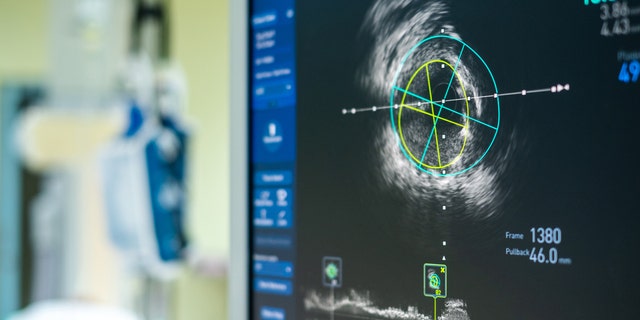
The main limitation of the new study from UCL was that the researchers didn’t have access to any imaging data, which is most commonly used to diagnose and predict risk in heart failure. (iStock)
For health professionals, Banerjee recommends that they ask their heart failure patients about common risk factors to help them understand the subtype they have.
“Researchers also need to test how usable, generalizable and acceptable these subtypes defined in our study are in clinical practice,” he added.
“They should also consider whether studies such as ours, which use AI, can help inform a better understanding of disease processes and drug discovery.”
The research team also developed an app for physicians that would enable them to determine which subtype of heart failure a patient has — with the goal of better predicting risk and keeping patients informed.
AI AND HEART HEALTH: MACHINES DO A BETTER JOB OF READING ULTRASOUNDS THAN SONOGRAPHERS DO, SAYS STUDY
Dr. Ernst von Schwarz, a triple board-certified clinical and academic cardiologist at UCLA in California, reviewed the results of UCL’s study.
“For clinicians, it is interesting to differentiate heart failure according to prognosis, which usually is not done in the clinical setting,” he told Fox News Digital. “Heart failure is generally seen as an incurable, chronic, progressive disease with poor long-term outcomes.”
“Heart failure is generally seen as an incurable, chronic, progressive disease with poor long-term outcomes.”
“Studies like this might help clinicians make a more appropriate risk assessment according to the etiology of heart failure,” von Schwarz added.
In particular, the very high mortality rate for atrial fibrillation-induced heart failure highlights the importance of aggressively managing this common arrhythmia, he said.
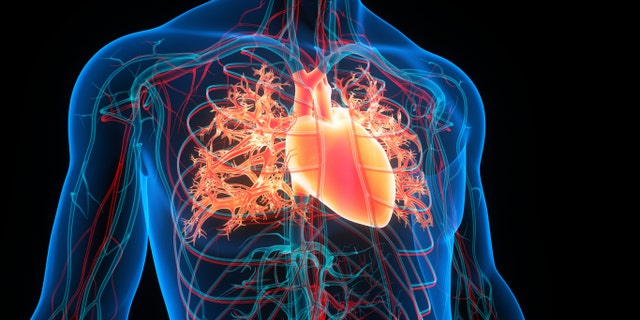
Researchers used machine learning — a type of artificial intelligence — to pinpoint five distinct types of heart failure. (iStock)
The mortality predictions for the five subtypes are “by far the most interesting part of this data,” according to Dr. Matthew Goldstein, a physician at Cardiology Consultants of Philadelphia, who also reviewed the study findings.
“This may help us guide who is at risk for dying suddenly, and thus, who needs protection with a defibrillator and who does not,” he added.
AI shows promise, but limitations remain
While Goldstein recognizes that AI is becoming more common in general, he believes its application is medicine has shown “somewhat less success.”
He told Fox News Digital, “It is, however, good at looking for patterns that are too complicated for the human mind to see.”
AI TECHNOLOGY CATCHES CANCER BEFORE SYMPTOMS WITH EZRA, A FULL-BODY MRI SCANNER
“Some of the more common utilizations are automatic readings of radiology studies to make sure that nothing is missed and emerging use in EKG interpretation to suggest underlying pathology,” he added.
In terms of using AI to classify heart failure, Goldstein noted that this is only a retrospective study and will need to be proven for future cases in order to be truly useful.
Looking ahead
The main limitation of the new study was that the researchers didn’t have access to any imaging data, which is most commonly used to diagnose and predict risk in heart failure.
“However, imaging markers alone do not predict mortality and other outcomes,” Banerjee said.
“The fact that we were able to use routinely collected data without this imaging data to predict subtypes and outcomes relatively well suggests that the imaging biomarkers alone may not be the best way to characterize and study heart failure at population scale.”

Using these findings as a foundation, Professor Banerjee of UCL said the next step is to determine whether these heart failure classifications can make a practical difference to patients. (iStock)
The next step, Banerjee said, is to determine whether classifying various heart failures can make a practical difference to patients — “whether it improves predictions of risk and the quality of information clinicians provide, and whether it changes patients’ treatment.”
CLICK HERE TO SIGN UP FOR OUR HEALTH NEWSLETTER
Cost-effectiveness is another consideration, he added.
The UCL research team previously used similar methods to identify subtypes in chronic kidney disease.
Looking ahead, Banerjee expects that machine learning will be used to analyze many types of routinely collected medical data and to identify subtypes of different diseases.

Health
Three women — ages 41, 55 and 64 — share their secrets to better health and longevity
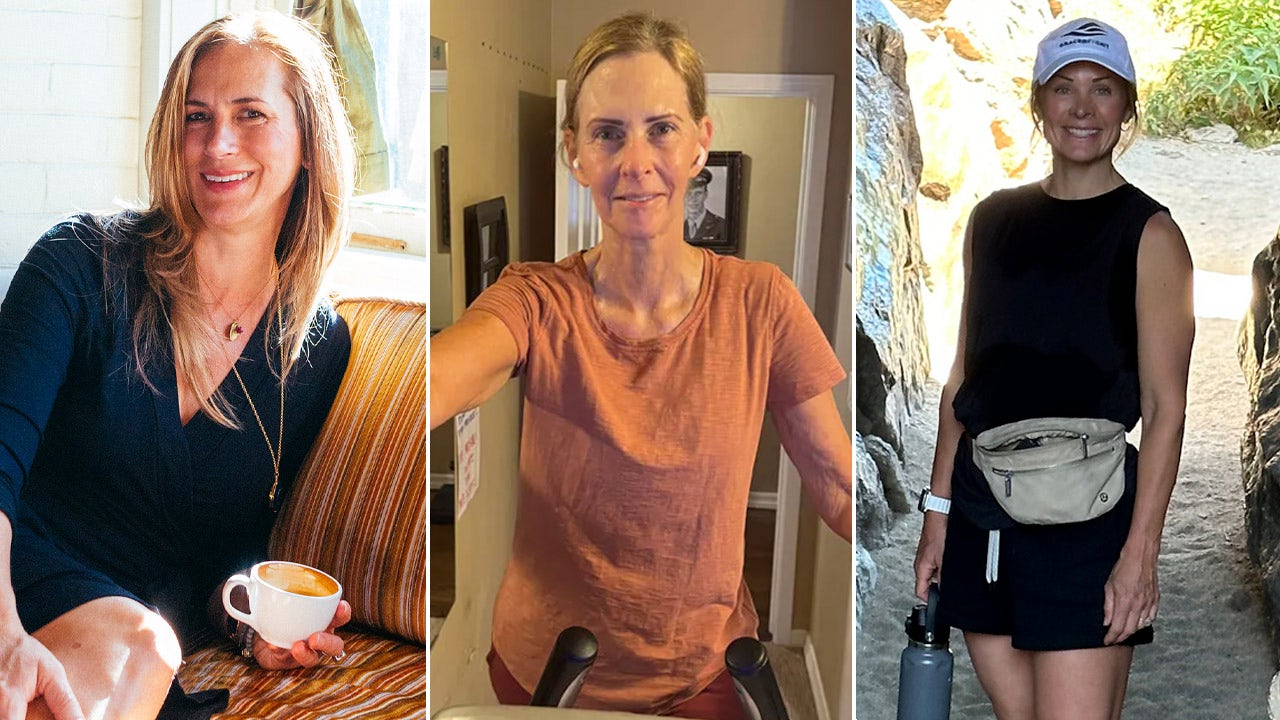
For an increasing number of women over 40, age really is just a number.
It may not be possible to stop the passage of time — but certain healthy habits can help slow down biological age, experts say.
“As we age, our abilities to perform certain physical and cognitive tasks decline, while our risks for disease and ultimately death increase,” Chris Mirabile, CEO and founder of NOVOS, a longevity supplements company in New York, told Fox News Digital.
“Although these changes are correlated with chronological age, biological age is a more accurate predictor, because it looks at individuals and how well – or poorly – they are aging.”
TO LIVE LONGER, DO THESE 5 THINGS EVERY DAY, SAYS A BRAIN HEALTH EXPERT
If a 40-year-old woman has a biological age of 35, it implies that she is biologically in the same place as an average 35-year-old, Mirabile said – which means a significant reduction in risk for disease and death, plus an increased capacity for activities associated with a high quality of life.
Left to right, Julie Gibson Clark, Amy Hardison and Lil Eskey shared the lifestyle habits that help them slow down biological aging. (James Lee; Amy Hardison; Lil Eskey)
For Women’s Health Month, three mothers at three different stages of life shared how they are defying age through simple lifestyle practices and interventions.
The women all participated in a six-month-long trial of NOVOS Core and Boost, supplements that are designed to slow down the aging process. Over the course of the study, they took three epigenetic tests, which analyzed DNA via a small blood sample to measure their “pace of aging.”
Lil Eskey, 41 years old, still has young kids
Lil Eskey, 41, is a stay-at-home mom and former fitness instructor in Phoenix, Arizona.
Growing up, she frequently had allergies and a constant sore throat.
“The way that my mom handled it was to put me on antibiotics so many times when I was a kid,” she told Fox News Digital.
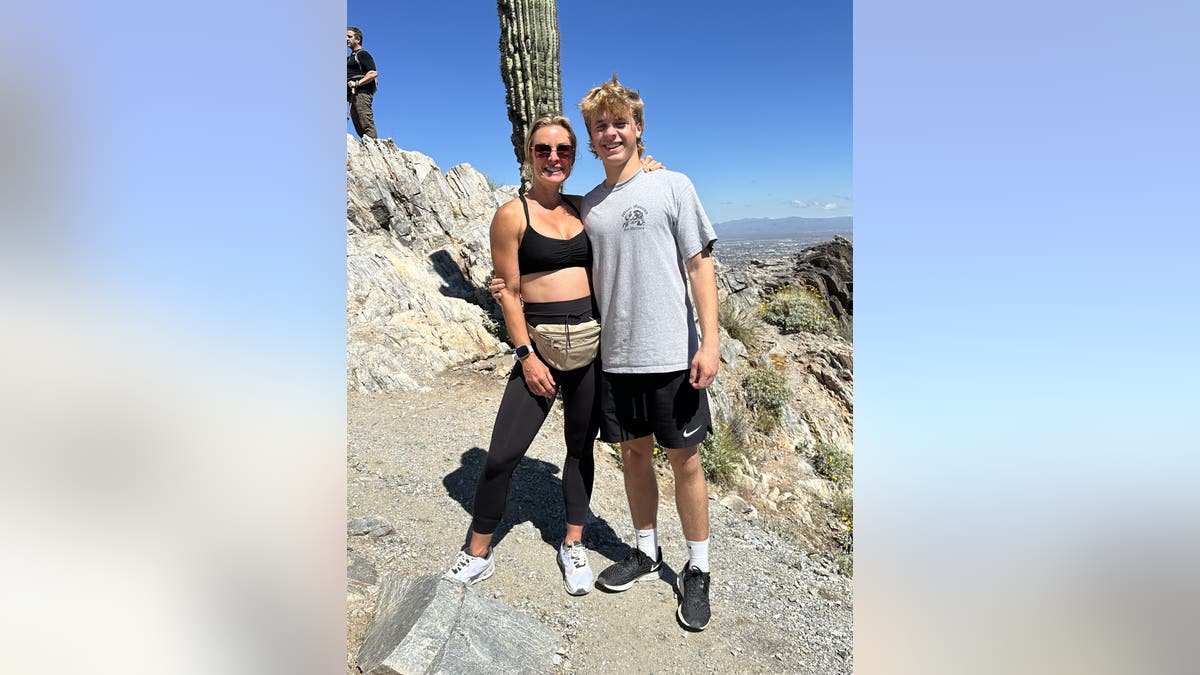
Lil Eskey, 41, pictured with her son, is a stay-at-home mom and former fitness instructor in Phoenix, Arizona. Maintaining a more youthful energy level is important to Eskey, as she is still raising young children. (Lil Eskey)
“I also had gut issues most of my life, so my path into health and wellness stemmed from trying to figure out what was going on with my body.”
Prioritizing her sleep is the biggest thing Eskey does for her health, she told Fox News Digital.
“Good sleep is so underrated,” she said.
FASTING-LIKE DIET COULD SLOW THE AGING PROCESS, STUDY SUGGESTS: ‘LIVING LONGER AND HEALTHIER’
“Having a consistent bedtime and wake-up time is so important for overall wellness. Everything works so much better when you’re well-rested, including any stressors in your life or anything going on with the mind.”
Eskey also tries to incorporate movement into her life wherever possible.
“When my son goes to preschool, I pull him on a bike trailer. The same goes for anything that’s a few miles away, like grocery shopping.”
“I want to be completely present for my kids and maintain a level of energy and vitality in life.”
After dinner, the family often goes out on bike rides or jumps on the trampoline.
“We do anything to make it fun,” she said.
When it comes to mental health, Eskey has made the decision not to use social media.

Pictured on a hike, Eskey said she incorporates movement into her life wherever possible. (Lil Eskey)
“I hear about anything that’s super important, and I’ll check the news occasionally to see what information I need, but to me, social media just seems like an additional stressor on the body,” she said.
Eskey and her family often experiment with different health practices, she said.
“I listen to different podcasts on health and fitness to hear about new science or new ideas, and then we’ll test it out to see what works,” she said.
BLOOD TEST MAY PREDICT THE ORGANS IN THE BODY THAT ARE AGING FASTER THAN NORMAL, SAYS STANFORD STUDY
“For example, I realized I feel way better when I have a couple of hours between having my last meal and going to bed.”
She’s also experimented with using a continuous glucose monitor to track her blood sugar.
“We’re always just doing different experimental things to see what makes the biggest change,” Eskey said.

Prioritizing her sleep is the biggest thing Eskey does for her health, she told Fox News Digital. “Good sleep is so underrated,” she said. (Photo Illustration by Ute Grabowsky/Photothek via Getty Images)
She has also been using anti-aging supplements from NOVOS. During the course of the study, Eskey’s biological pace of aging was reduced from .99 to .77.
“The time we’re here on this earth doesn’t always have to reflect the cumulative stress on our bodies. Rather, it’s stress that causes aging,” she said.
10 TIPS TO LIVE TO BE 100: ‘FAR MORE THAN WISHFUL THINKING,’ SAY LONGEVITY EXPERTS
“It’s more important now than ever, with all the toxins and stressors we’re facing.”
Maintaining a more youthful energy level is important to Eskey, as she is still raising young children, she said.
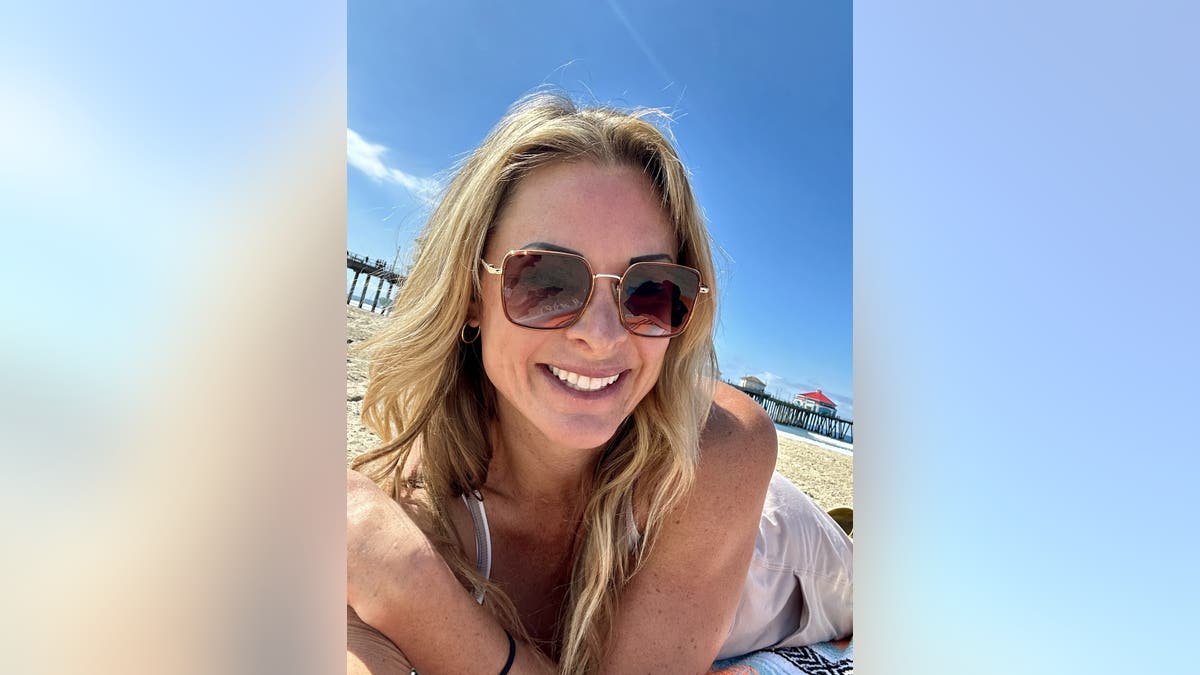
“The biggest thing is being able to keep up with my kids and be totally active,” Eskey said. (Lil Eskey)
“The biggest thing is being able to keep up with my kids and be totally active,” she said.
“When my kids want to play at the park, it’s important to me that I’m not just sitting on the bench watching them. I want to be completely present for my kids and maintain a level of energy and vitality in life.”
Julie Gibson Clark, 55 years old, focuses on movement
A recruiter who lives in Phoenix, Arizona, Julie Gibson Clark said she focuses on seven key areas to help slow down biological aging.
The first is movement, both strength and cardio. “I focus on full-body strength training twice per week and a mix of zone 2 and Vo2Max training the rest of the week,” she told Fox News Digital.
5 HEALTHY HABITS MAY BE THE SECRET TO LIVING LONGER, FLORIDA NEUROSURGEON REVEALS
In her diet, Clark focuses heavily on veggies.
“I mix cooked greens and veggies, about 1 pound total every day,” she said. “I started small (about 4 ounces) and added about 1 ounce per week.”
Clark also prioritizes 90 to 100 grams of healthy protein each day: a mix of vegan protein, collagen and healthy, pasture-raised meats and eggs.
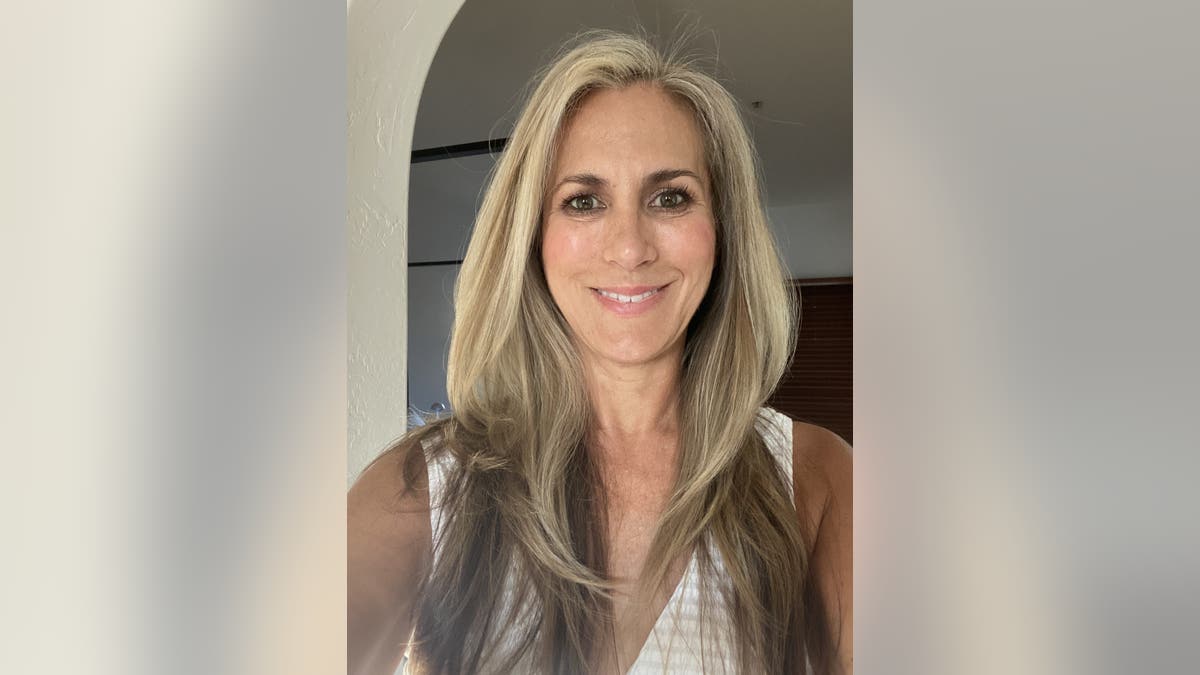
Julie Gibson Clark, a recruiter who lives in Phoenix, Arizona, said she focuses on seven key areas to help slow down biological aging. (Julie Gibson Clark)
Sleep is also a big priority for Clark. “It’s hard to perform well at anything without proper sleep,” she told Fox News Digital.
Saunas and cold showers are another part of Clark’s regular routine. “This is my natural antidepressant and helps with focus during the day,” she said. “For anyone struggling with low mood or stressful times, I highly recommend trying this.”
Clark also began meditating in 2019, which she described as “a game-changer for stress and sleep.”
“I like to think of longevity practices like a braid with three strands — exercise, eating right and prioritizing sleep.”
“Twenty minutes every afternoon improves my sleep and allows me to recalibrate stress levels during the day,” she said.
Clark also takes NOVOS supplements, which she credits with increasing her energy levels and slowing her pace of aging by 8%, according to the study results.
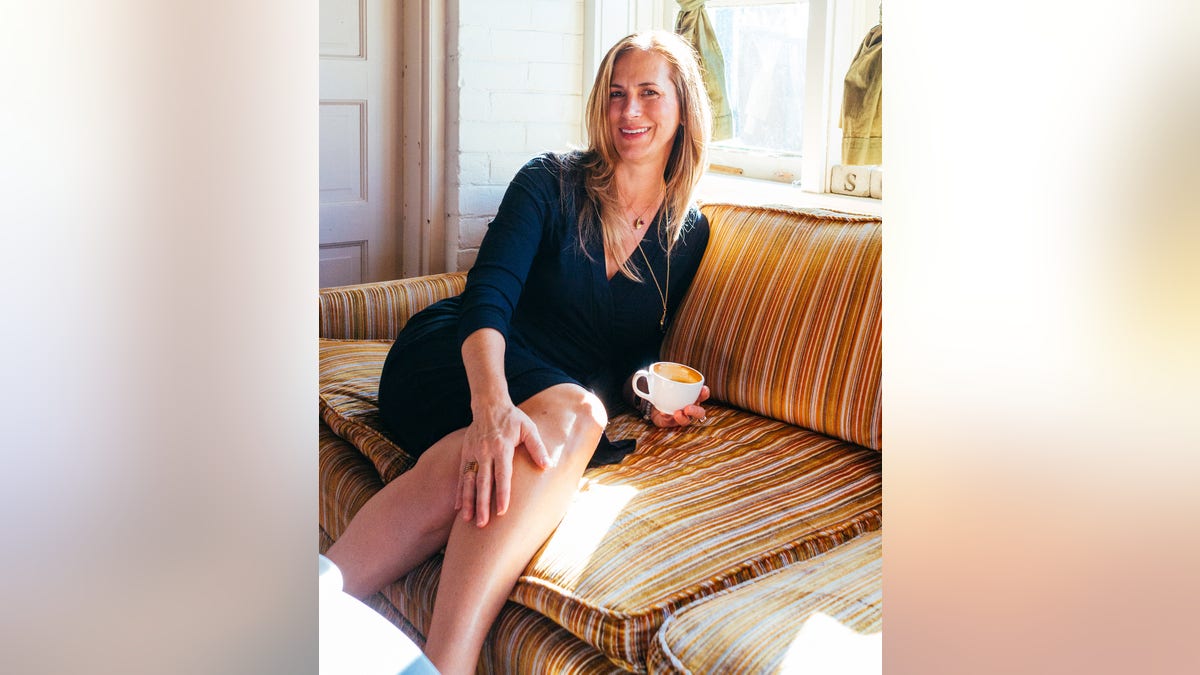
“When you start moving, you’ll likely be more motivated to eat well, and your sleep will be better. When you sleep, it’s easier to stay on track with your diet and fitness plans,” Clark said. “They all work together.” (James Lee)
“I like to think of longevity practices like a braid with three strands — exercise, eating right and prioritizing sleep,” she told Fox News Digital. “And there’s an extra colorful strand in there: supplements. Each of these works together to help the others.”
She added, “When you start moving, you’ll likely be more motivated to eat well, and your sleep will be better. When you sleep, it’s easier to stay on track with your diet and fitness plans. They all work together.”
AI TECH AIMS TO HELP PATIENTS CATCH DISEASE EARLY, EVEN ‘REVERSE THEIR BIOLOGICAL AGE’
Clark said she adheres to the motto, “It’s not the years in your life, but the life in your years.”
“I want all the years I have to be full of mobility, vibrance and vitality.”
Amy Hardison, 64 years old, makes exercising fun
A writer and grandmother of 11 in Mesa, Arizona, Amy Hardison has always had consistent health and exercise habits.
“I have exercised aerobically an hour a day, six days a week for 50 years and have rarely missed a day,” she told Fox News Digital.
“I always listen to an audiobook while exercising, making it even more fun.”
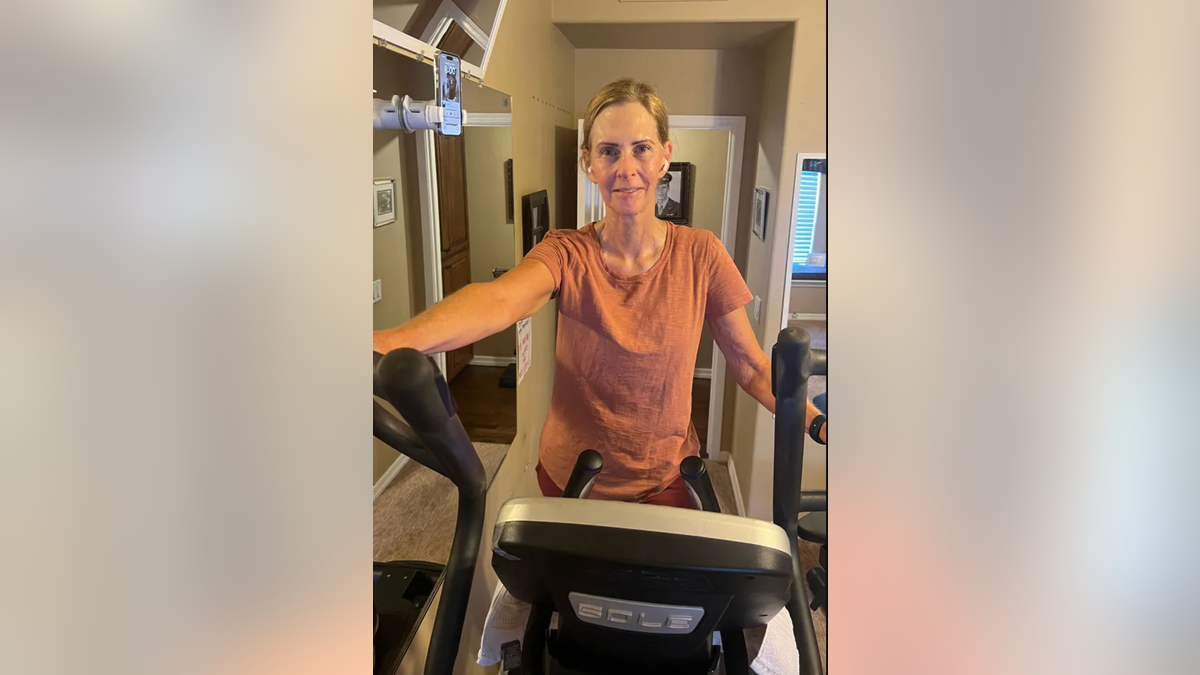
Amy Hardison’s favorite exercises include swimming and working out on the elliptical. “I love working out at home — other people love going to a gym and having a trainer. Do whatever works for you and then do it consistently,” she advised. (Amy Hardison)
Hardison’s favorite exercises include swimming and working out on the elliptical.
“I love working out at home — other people love going to a gym and having a trainer. Do whatever works for you and then do it consistently,” she advised.
Regarding nutrition and exercise, Hardison’s philosophy is to find something you love that you can stick with long-term.
“Aging will take you places you have never been.”
“Some people totally cut out sugar from their diet, often because they tend to eat too much once they start,” she said. “Others, like me, eat small amounts each day.”
Hardison had never been into vitamins and supplements until she got involved in the NOVOS study.
“I really liked that the study included bloodwork at the beginning, middle and end of the year-long trial,” she said.
THESE 5 STEPS CAN HELP YOU BUILD A BETTER BODY: ‘IT’S NOT ROCKET SCIENCE’
“My bloodwork revealed that at the beginning of the study, I was aging at .86 biological years for every chronological year. At the end of the study, I was aging at .74. That is compelling empirical data.”
Although Hardison does what she can to stay physically healthy and mentally sharp, she acknowledges that there is a limit to what she can control.
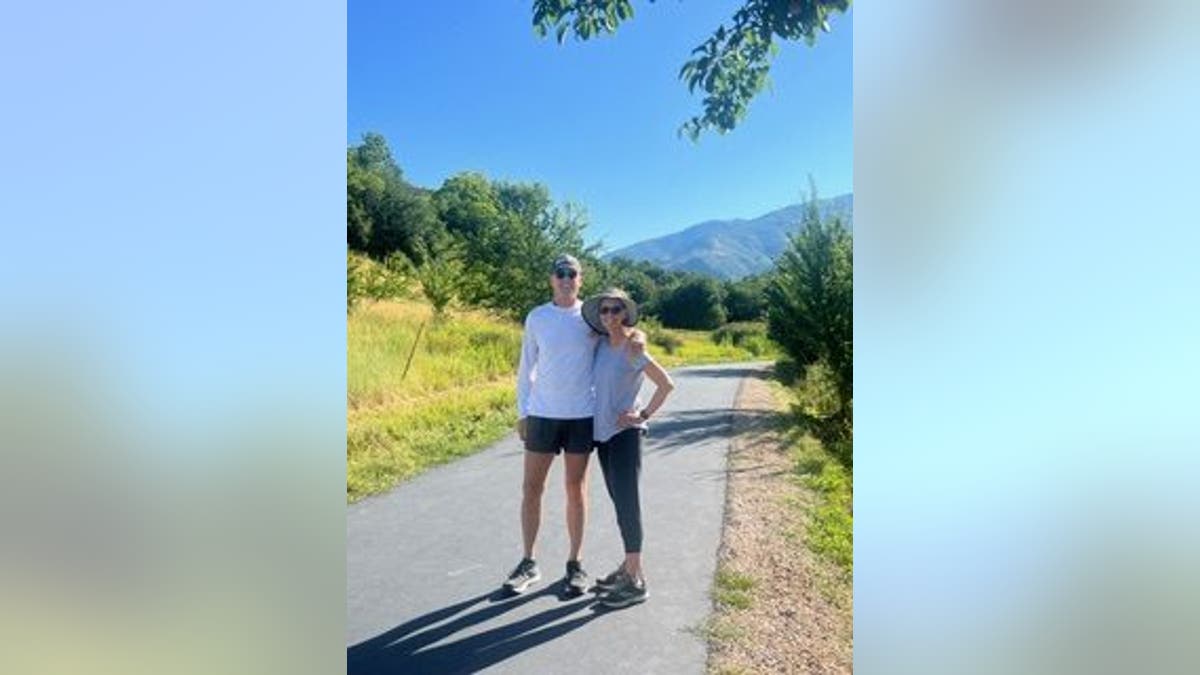
“Life is to be lived and enjoyed,” said Hardison, pictured hiking with her husband. (Amy Hardison)
“There is even a limit to how much I am willing to invest in longevity,” she said. “Life is to be lived and enjoyed.”
“Aging will take you places you have never been,” Hardison continued.
“There is so much to learn and experience. Embrace the normal and natural decline with humor and perspective. Thank your body for taking you on the journey.”
A biohacker’s 5 quick tips for healthy aging
Melanie Avalon, health influencer, entrepreneur and host of The Intermittent Fasting Podcast and “The Melanie Avalon Biohacking Podcast,” agreed that women can take proactive steps to slow their pace of aging.
BIOHACKING REVEALED: WHAT TO KNOW ABOUT THE HIP HEALTH TREND EMBRACED BY BROOKE BURKE, TOM BRADY AND OTHERS
“The ever-growing online bloodwork and genetic platforms allow women access to personal data, providing a deeper view of their aging on a cellular level, including monitoring their biological age, which may differ from their chronological age,” she told Fox News Digital.
“Women can then make dietary and lifestyle choices to optimize these markers.”
1. Optimize sleep
One of the biggest issues aging women experience is restless sleep, often characterized by tossing, turning and hot flashes, according to Avalon.

One of the biggest issues aging women experience is restless sleep, often characterized by tossing, turning and hot flashes, according to Avalon. (iStock)
“Women can implement a ‘sleep sanctuary’ to best support a restorative night, including sticking to a consistent wind-down routine and sleep schedule, in a cool, dark environment,” she advised.
Using a cooling mattress, avoiding late-night blue light exposure, and finding the optimal sleep position are some ways women can achieve better sleep quality, Avalon advised.
2. Seek hormonal support as needed
“Women often dread the perimenopausal years for their seemingly inevitable rollercoaster of hormonal issues,” Avalon said.
“Women can support healthy hormonal levels and natural transitions into the menopausal years by nourishing their bodies with micronutrient-rich whole foods, getting ample sleep, addressing stress levels, and reducing their exposure to toxins.”
EXPERIMENTAL CANCER TREATMENT GIVES NEW JERSEY MOM A CHANCE FOR A SECOND BABY: ‘I DECIDED TO GO FOR IT’
For some women, hormone replacement therapy may be an option.
“Many women may find that the benefits outweigh the risks,” Avalon noted.
3. Optimize muscle mass
Maintaining muscle mass is crucial for healthy aging, according to Avalon.
“Declines in muscle mass and strength are intrinsically tied to mortality, playing a causative role in falls and metabolic issues,” she said.

The maintenance of muscle mass is crucial for healthy aging, according to one expert. (iStock)
“Aging typically leads to reduced muscle protein synthesis,” Avalon noted.
“Women should pay careful attention to getting ample protein as they age, with a particular focus on the amino acid leucine, which stimulates muscle protein synthesis.”
CLICK HERE TO SIGN UP FOR OUR HEALTH NEWSLETTER
Aging women should aim for a gram of protein per pound of body weight, Avalon recommended.
“Women can also engage in strength training to further support muscle growth and maintenance,” she added.
4. Monitor essential markers
“Aging women should embrace the agency to take their health into their own hands,” Avalon said.
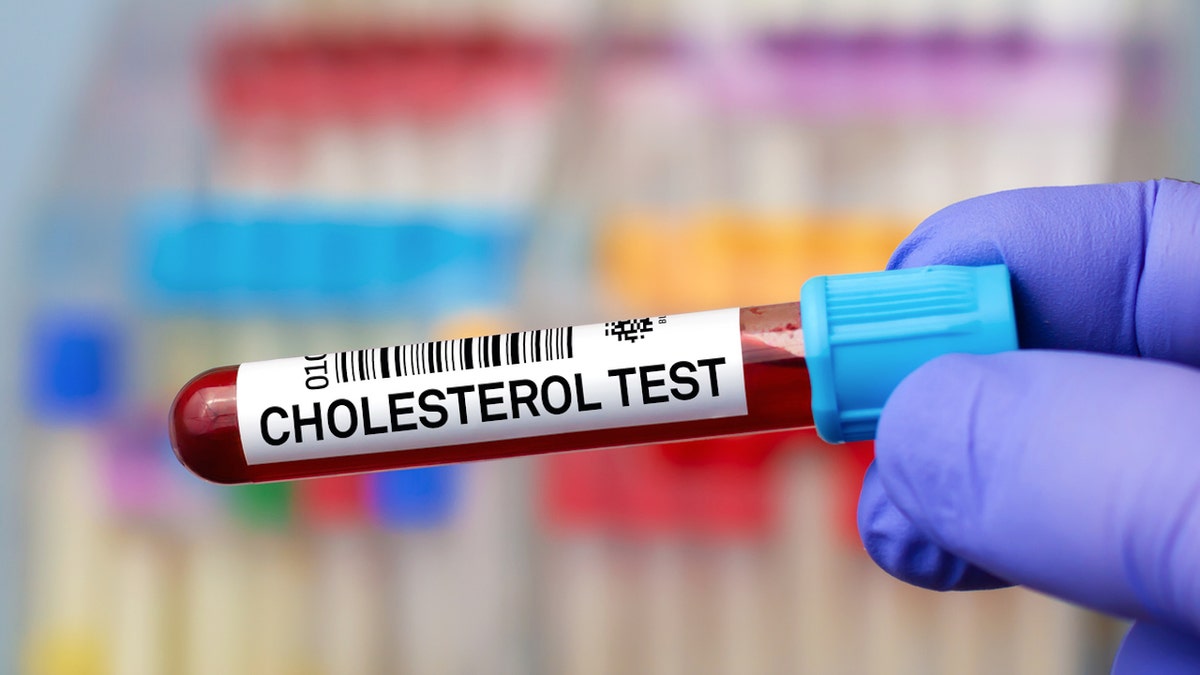
Women should work with conventional doctors to regularly check key health metrics, such as blood pressure, blood sugar levels, cholesterol and bone density, along with other markers of disease, an expert advised. (iStock)
She recommends working with conventional doctors to regularly check key health metrics, such as blood pressure, blood sugar levels, cholesterol and bone density, along with other markers of disease.
5. Achieve proper glycemic control
Poor glycemic control is linked to a myriad of degenerative diseases, from prediabetes and diabetes to cardiovascular disease and cognitive decline, according to Avalon.
“Aging women can implement an unprocessed, whole-food-based diet, low to moderate in carbs, depending on their tolerance,” she said.
Women can also opt to wear a continuous glucose monitor (CGM) to monitor their blood sugar levels.
For more Health articles, visit www.foxnews.com/health.
Health
Heart attacks more likely during presidential elections and other stressful times, study shows
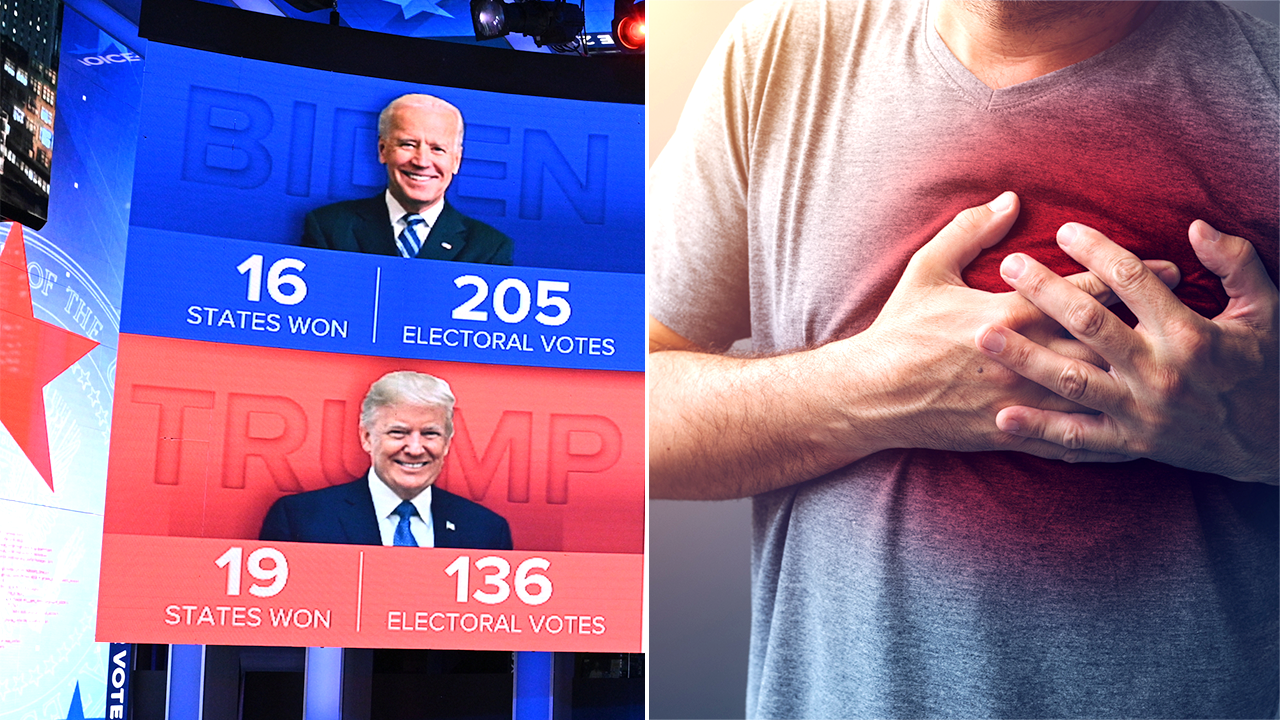
Your genes could put you at a higher risk of heart attack during very stressful times.
Research from Massachusetts General Hospital found that people who have specific genetic traits, paired with anxiety or depression, are at a “significantly higher heart attack risk” during periods of social or political stress, such as presidential elections, winter holidays or even the Super Bowl.
The study, presented at the American College of Cardiology’s annual scientific session in April, was the first to examine stress sensitivity based on genetics as a driver of acute coronary syndromes (ACS).
CHICAGO NURSE IS FINALLY FREE OF COVID-19-RELATED PTSD AND DEPRESSION AFTER ELECTRICAL BRAIN TAPPING THERAPY
These syndromes include heart attacks and other “serious conditions where the heart is suddenly deprived of blood supply,” a press release noted.
Of 18,428 Mass General Brigham Biobank participants, 1,890 developed ACS between 2000 and 2020.
People with high stress sensitivity, anxiety or depression are at a “significantly higher heart attack risk” during periods of social or political stress, the study found. (Lorenzo Bevilaqua/ABC via Getty Images; iStock)
The researchers measured the participants’ stress sensitivity by measuring their neuroticism polygenic risk score (nPRS).
Stressful periods — including five days after presidential elections and 10 days surrounding Christmas Day — made up 3.2% of the observed timeline.
A total of 71 ACS cases took place during stressful periods, compared to 1,819 during control periods.
AMERICANS NEED MORE SLEEP, LESS STRESS, EXPERTS SAY, AS GALLUP POLL REVEALS TROUBLING FINDINGS
People with high genetic stress sensitivity had a 36% higher risk of ACS, the researchers found.
Those with high genetic stress who also developed anxiety or depression had three times the risk.

People with above median nPRS, or high genetic stress sensitivity, had a 36% higher risk of ACS, a new study found. (iStock)
“High nPRS, indicating elevated genetic susceptibility to stress, mediates ACS risk during periods of socio-political stress,” the study authors wrote as a conclusion. “A multifaceted approach to [cardiovascular disease] prevention may benefit.”
In an interview with Fox News Digital, lead study author Shady Abohashem, M.D., instructor of cardiovascular imaging at Massachusetts General Hospital and Harvard Medical School, said that while the numbers are “striking,” the results overall are not surprising, since anxiety and depression alone have been associated with a substantial risk for heart attack regardless of genetics.
ANGER CAN INCREASE HEART ATTACK RISK, STUDY FINDS: ‘CHRONIC INSULT TO ARTERIES’
“So, if you have both conditions, you would expect to have a substantial increase in your risk,” he said.
Through scientific analysis, Abohashem and his fellow researchers found that about 25% of ACS cases were due to anxiety and depression.

About a quarter of ACS developments in this study were due to anxiety and depression, the researcher told Fox News Digital. (iStock)
The impact of genetic susceptibility on heart attack risk could be an important factor for cardiologists and general care physicians to consider, Abohashem said.
He suggested implementing these screenings into cardiovascular risk assessments to help identify those people at most risk.
“The mind-heart connection is strong, and this study highlights that not only our bodies, but also our minds, need rest and care.”
“Based on that identification, we could develop targeted intervention, or maybe preventive strategies, that could help us protect those people from developing heart attacks in the future,” he added.
HEART HEALTH RISK FACTORS FOR WOMEN OVER AGE 50
The researchers are currently working on a study to discover how lifestyle modifications can benefit people with a high genetic risk for stress.
As 2024 is an election year, Abohashem advised Americans to manage stress through effective outlets like exercise or yoga.
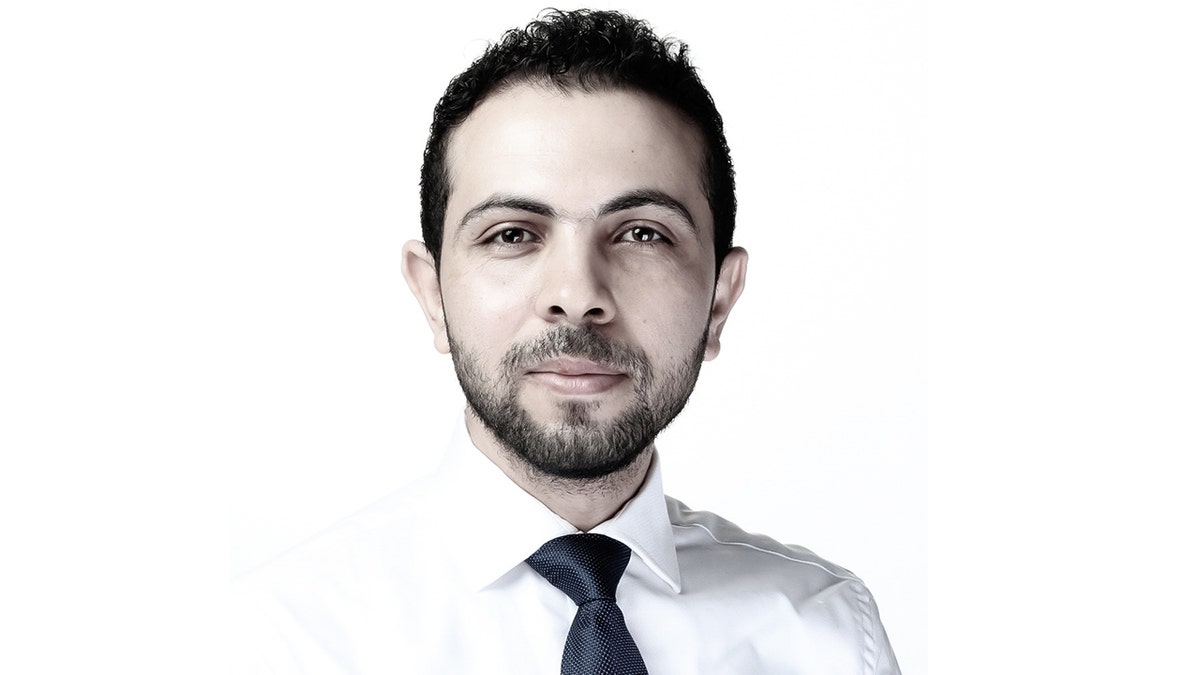
Shady Abohashem, M.D., instructor of cardiovascular imaging at Massachusetts General Hospital and Harvard Medical School, was the lead author of the new study and shared insights with Fox News Digital. (ACC (American College of Cardiology))
Dr. Laxmi Mehta, an American Heart Association medical expert and cardiology director at The Ohio State University, commented on the study in a statement sent to Fox News Digital.
“This is an interesting study that further supports the data of the mind-heart connection,” said Mehta, who was not involved in the research. “It highlights the importance of mental health and its impact on overall health, including the heart.”
CLICK HERE TO SIGN UP FOR OUR HEALTH NEWSLETTER
Mehta did note that the “retrospective nature” of the study “limits the ability to show a direct causal relationship between mental health conditions” such as depression and anxiety.
The study “reinforces whole-person preventative care,” the cardiologist emphasized.

A doctor stressed the importance of a medical focus on the “mind-heart connection.” (iStock)
“The mind-heart connection is strong, and this study highlights that not only our bodies, but also our minds, need rest and care,” she said.
“The public needs to be aware of the impact social and political stress has on us, that it is OK to take a break from these stressors, and also that it is good to learn more about interventions like yoga, exercise and mindfulness.”
The expert encouraged doctors to advise their patients on the American Heart Association’s “Life’s Essential 8,” which are key measures to maintaining cardiovascular health.
These eight steps include eating better, being more active, quitting nicotine products, getting healthy sleep, managing weight, controlling cholesterol, managing blood sugar and maintaining healthy blood pressure.
For more Health articles, visit foxnews.com/health.
Health
This 30 Plants a Week Hack Helped One Woman Lose 227 lbs — How It Can Work for You
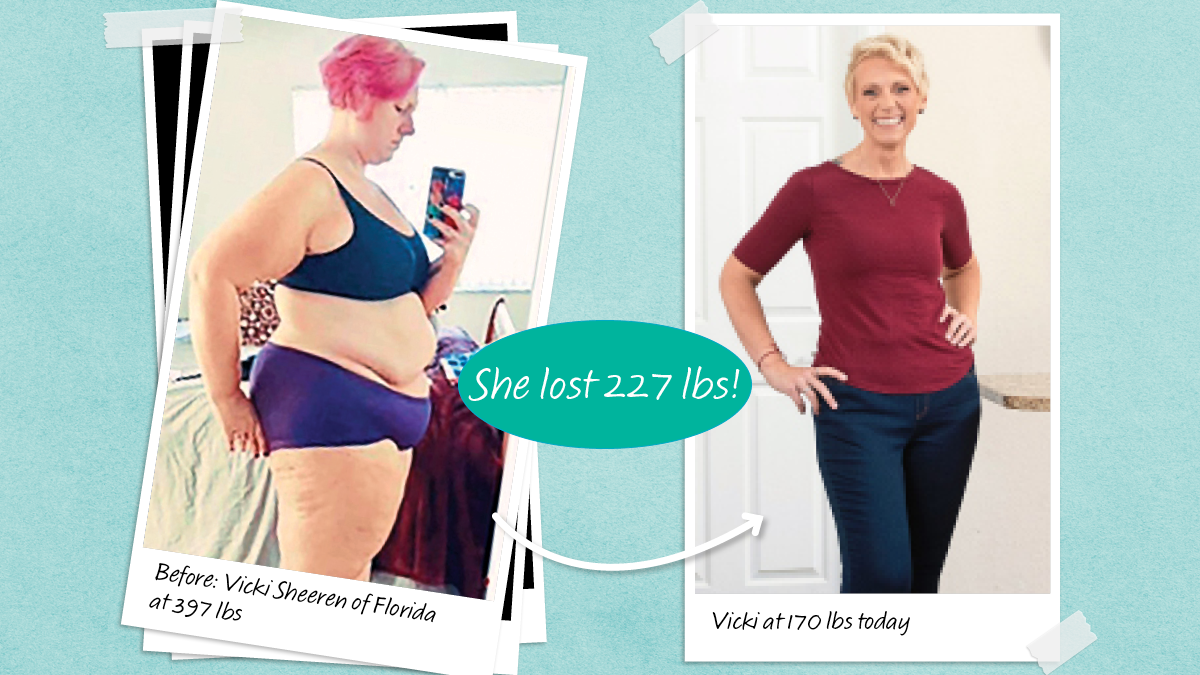
Sign Up
Create a free account to access exclusive content, play games, solve puzzles, test your pop-culture knowledge and receive special offers.
Already have an account? Login
Forgot your password?
Get back to the Sign In
Use left and right arrow keys to navigate between menu items.
Use escape to exit the menu.
-

 News1 week ago
News1 week agoSkeletal remains found almost 40 years ago identified as woman who disappeared in 1968
-

 World1 week ago
World1 week agoIndia Lok Sabha election 2024 Phase 4: Who votes and what’s at stake?
-

 World1 week ago
World1 week agoUkraine’s military chief admits ‘difficult situation’ in Kharkiv region
-

 Movie Reviews1 week ago
Movie Reviews1 week agoAavesham Movie Review
-

 World1 week ago
World1 week agoCatalans vote in crucial regional election for the separatist movement
-

 News1 week ago
News1 week agoTrump, Reciting Songs And Praising Cannibals, Draws Yawns And Raises Eyebrows
-

 Politics1 week ago
Politics1 week agoNorth Dakota gov, former presidential candidate Doug Burgum front and center at Trump New Jersey rally
-

 Movie Reviews1 week ago
Movie Reviews1 week agoUnfrosted Movie Review: A sweet origins film which borders on the saccharine















